
Design and its thinking have historically been complicit with multiple structural systems of oppression—serving to concretize, perpetuate, and disseminate power and privilege. Contemporary struggles for social, spatial and environmental justice are efforts to undo these historical systems of oppression which exist in our world by design. Our new Online Course and Fellowship explores the construction of these systems, and examines the designed past and the pastness of design, brushing its histories against the grain.
Against the Grain: Critical Perspectives on the Designed Past is conceived and curated by Nina Paim, curator, researcher, editor, and Futuress co-founder; and Cherry-Ann Davis, designer, researcher and writer. This Online Course and Fellowship Program aims to democratize access to the writing of design history—in a broad sense. Our transdiciplinary approach provides participants with intersectional feminist and decolonial insights, using various methods and approaches—including, but not limited to: source criticism, archival research, oral history, and more. By weaving in various fields and disciplines, we challenge the established epistemologies and give voice to historically silenced narratives and perspectives.
Online Course
— Starts: April 16, 2021
— Ends: June 4, 2021
— 8 lectures available live or asynchronously
— Access to the Futuress Slack platform
— Price: Solidarity €240, Basic €120, Student €40
→ Register here for the Against the Grain Online Course
Fellowship
— Starts: April 16, 2021
— Ends: June 28, 2021
— 4 collective brainstorm sessions
— Individual coaching on demand
— Access to the Futuress Slack platform
— All results will be edited by and published on Futuress
— Entirely free of charge
— Maximum of 32 spots
→ Apply here for the Against the Grain Fellowship
Online Course
Starting on April 16, every Friday we welcome a different lecturer to share their unique research and insights. Our fully-female line-up features:

April 16 | 5 pm CEST
Decolonizing Colonial Desire
with Uzma Rizvi, anthropological archaeologist, cultural archaeologist, and curator
April 23 | 5 pm CEST
Deforestation as Epistemicide
with Franca López Barbera, designer,
researcher and curator
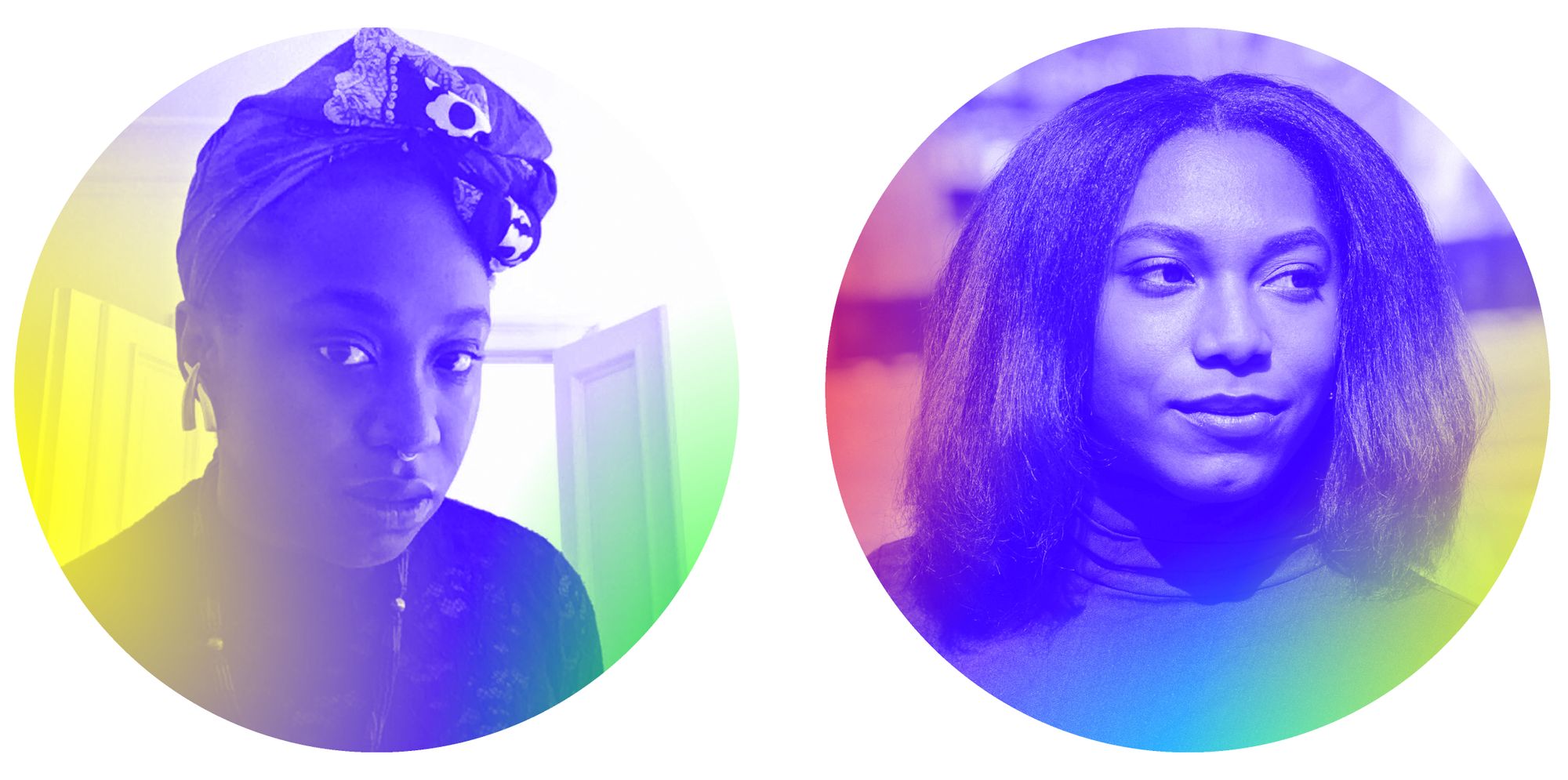
April 30 | 5 pm CEST
Imperial Fevers, Invisible Lives
with Edna Bonhomme, historian, writer,
and interdisciplinary artist
May 7 | 5 pm CEST
The Frame of History
with Evan Nicole Brown, writer, reporter,
and editor
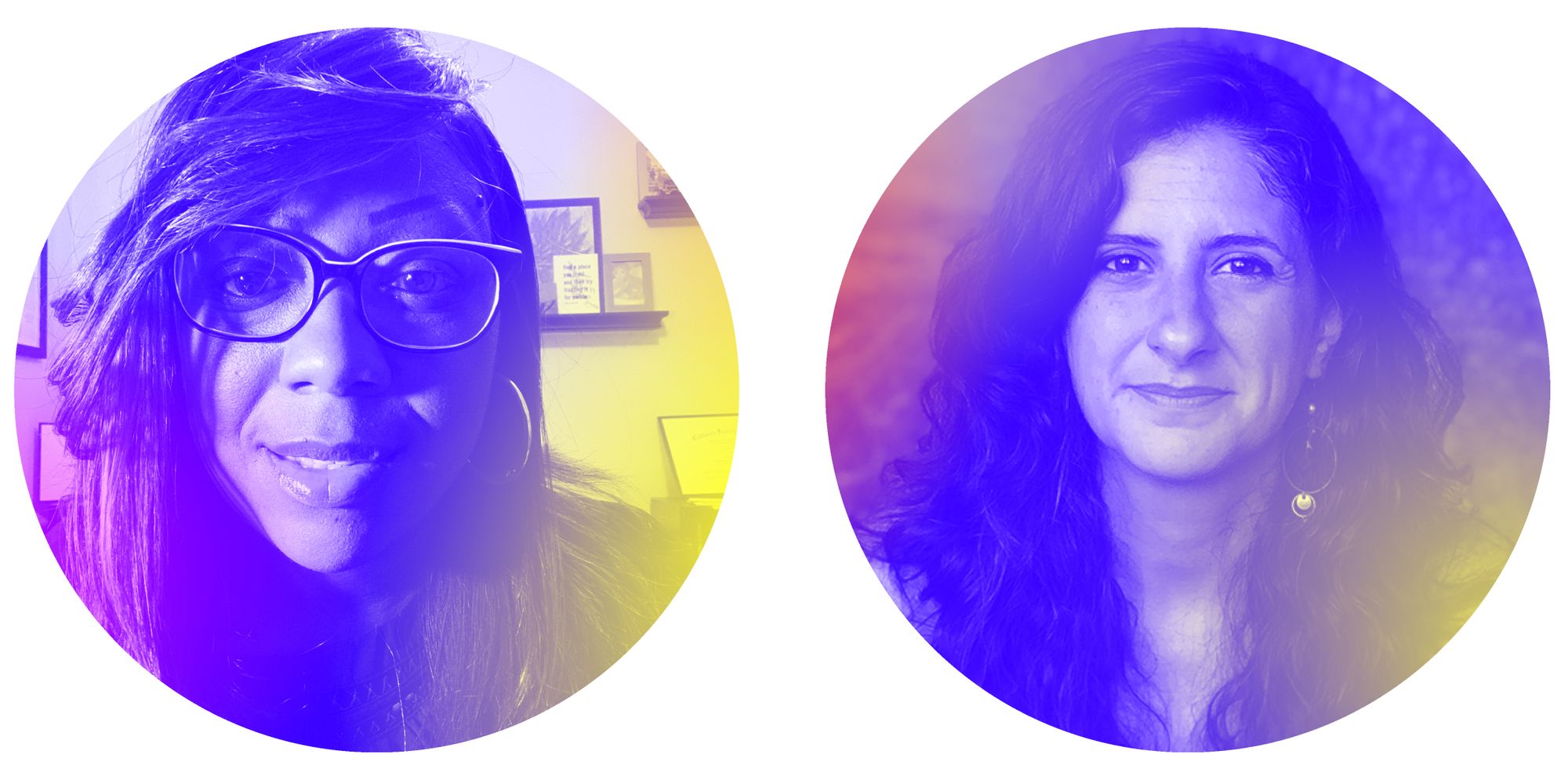
May 14 | 5 pm CEST
Finding Louise E. Jefferson
with Tasheka Arceneux-Sutton, artist, educator, designer, and researcher
May 21 | 5 pm CEST
Ladies of Letters
with Bahia Shehab, multidisciplinary artist, designer, activist and historian

May 28 | 5 pm CEST
Salted Waters in the Whorls of Time
with Luiza Prado de O. Martins, artist, writer,
and researcher
June 4 | 5 pm CEST
Visualising the Invisible
with Sria Chatterjee, art historian, and environmental humanities scholar
Together these fabulous, fierce speakers will take participants on a journey through multifaceted topics including: colonial desires of museum collection, environmental destruction as epistemicide, epidemics and social inequality, the political histories of seeing and unseeing, and much more. Through their input, they bring to the foreground missing histories; and explore writing as a means of undoing historical harm, research as activism, and storytelling as resistance.
All lectures will be available synchronously and asynchronously, and participants will be invited to join the Futuress Slack platform to continue sharing and learning from each other. In addition, by registering for this online course, you not only enter a transnational design community, but also help to sponsor 32 participants to join our parallel Fellowship Program and craft their own narratives against the grain, which you will eventually read here on Futuress.
Price: Solidarity €240, Basic €120, Student €40
Your participation supports the Futuress Fellowship program.
→ Important: if you chose to register as a student, please send us proof of current enrollment to grain@futuress.org.
→ Register here
You are registering for the Against the Grain Online Course directly by payment. Please add your name and pronouns in the “description” section, which will appear after pressing the “Pay now” button.
The fees for the Against the Grain 2021 online class contributes primarily to the Futuress Fellowship program. Your payment supports the free access of 32 participants to craft their own narratives against the grain, and for the overall cost of running the online course and administration of the online community on Slack. We try to keep the fees as low as possible, and want to ensure a fair and solidarity-based pricing model.
Fellowship
The Fellowship is a para-academic environment to nurture the crafting of independent narratives against the grain. Its structure is simple: alongside having full access to the lectures within the Online Course, fellows meet periodically in collective brainstorm sessions (always on Mondays) over a period of two months. This will also be supplemented by individual on-demand coaching. In those sessions, you’ll share your ongoing research, give and get feedback, and learn new insights from others. Our workshop leaders Nina Paim and Cherry-Ann Davis will be following your work closely, helping to hone your craft with their (at times divisive!) viewpoints, constructive critiques, and practical advice for improvement.
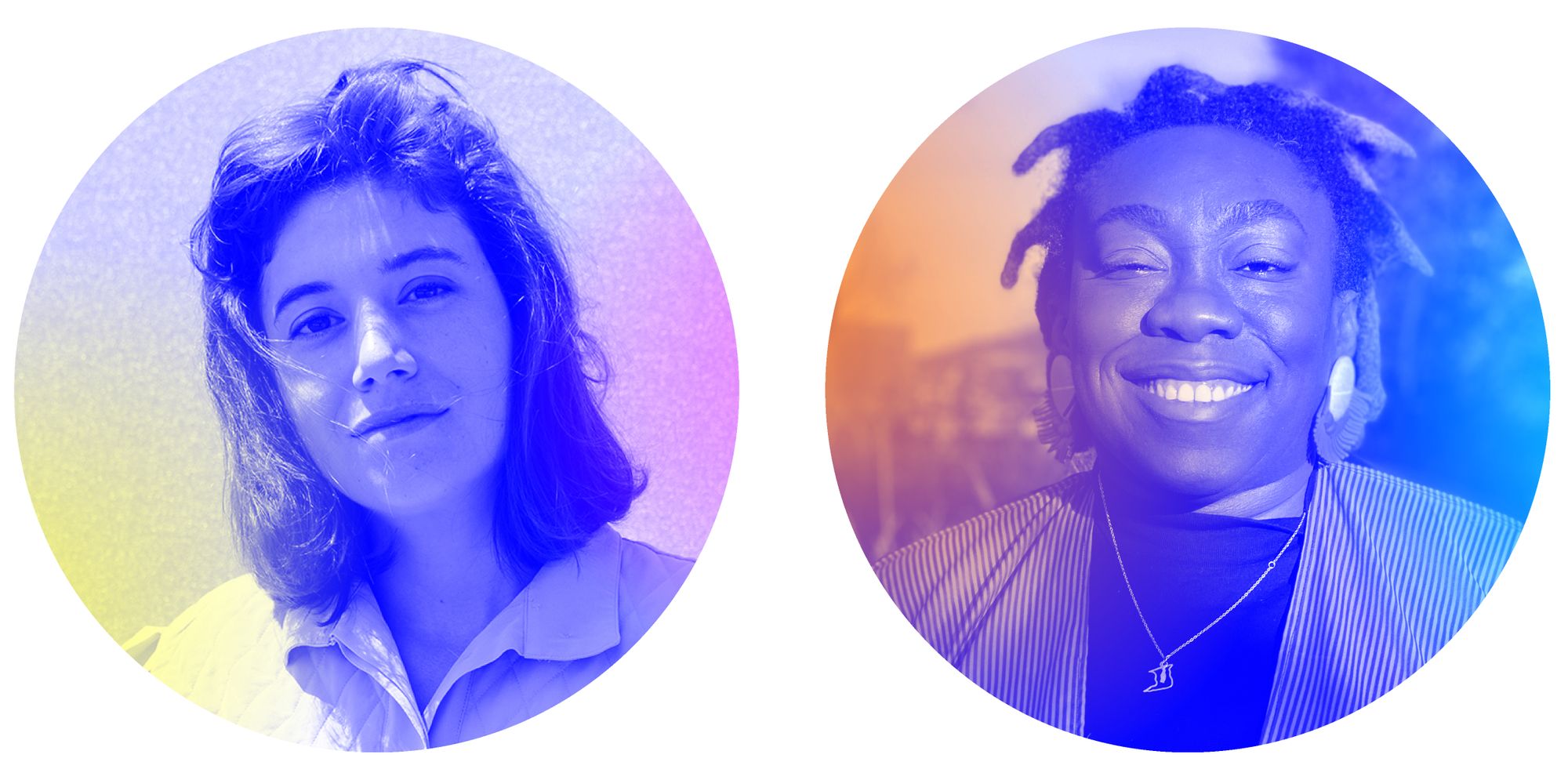
Curator, editor, researcher & co-founder of Futuress Nina Paim
Designer, researcher & writer Cherry-Ann Davis
Each fellow brings their ongoing research to the workshop—this could be a thesis that’s in the works, a final year project, a semester assignment, a long-standing obsession, or a piece of research you’ve been pursuing on your own accord. By the end of the workshop, you will produce one article relating to your research topic, which will be edited and published on Futuress.
At Futuress, we believe in the power of accessible writing to reach wide audiences of varying ages, geographies, and backgrounds. We believe that great writing can open people’s eyes to inequalities and injustices in the world. This is the power that we seek to harness in the fellowships. We will support each of you in crafting your research into an accessible format—adhering to our guiding philosophy to make design research public.
Thanks to the patronage of the Online Course, the Fellowship is entirely free, but places are limited to a maximum of 32 spots. Priority will be given to applicants from historically marginalized backgrounds. Applications will be accepted until April 4, 2021, at 12pm CET. Selected participants will be announced on April 9, 2021. If you have any questions, please contact us at grain@futuress.org.
Nina Paim is a Brazilian curator, editor and design researcher. Her work usually involves many others and revolves around notions of directing, supporting, and collaborating. She was born in Nova Friburgo 168 years after Swiss settler-colonialists displaced the indigenous tribes of the puris, coroados, and guarus. Love and fate brought her to Basel, where she seeks to transmute her daily immigrant anger into care practices for making space. She curated the exhibition “Taking a Line for a Walk” at the 2014 Brno Design Biennial and co-curated “Department of Non-Binaries” at the 2018 Fikra Design Biennial. She was a program coordinator for the 2018 Swiss Design Network conference “Beyond Change.” She’s a two-time recipient of the Swiss Design Award, and co-founder of Futuress.
Cherry-Ann Davis, a designer, writer, and marketing strategist from the Caribbean twin island of Trinidad and Tobago. A success story from a marginalized and impoverished community, her drive is to inspire other young people, especially girls, to achieve their dreams. Dearly departed from the corporate world of advertising, she is now flexing her design muscle as a visual communications specialist by combining artistic practice, business acumen, and storytelling traditions. A common thread in her design practice is creating Caribbean stories in an authentic Caribbean voice, respecting the past while looking to the future to sustain our stories, and using accessible formats to share these stories.
→ Applications closed!
At the end of the program, you might end up producing a Q&A interview, a personal essay, data journalism, an investigative report, or something else entirely. It’s up to you—and how you want to manifest your voice and story. Although published and edited by Futuress, each Futuress Fellow is granted exclusive rights to their text, meaning that you may sell and republish it in another outlet. The Futuress team will be there to offer advice, suggestions, and guidance in this domain.
Futuress publishes in English because it’s a central bridging language between members of our community, and also because the English-language dominates the global information market. Futuress wants to claim this language—a tool of colonial powers past—and use it against itself. However, additional editorial support will be given to participants for whom English is not their primary language.
In total, the program offers four collective brainstorm sessions, always scheduled on Mondays. Participants will be split into smaller groups based on their timezone and availability. Sessions are scheduled to occur on April 19, 26, May 10, 17, 31, June 7, 21, and 28. Beyond that, participants will also profit from individual coaching sessions on demand.
Program
April 16, 2021, 5 pm CEST
Uzma Rivzi, Decolonizing Colonial Desire
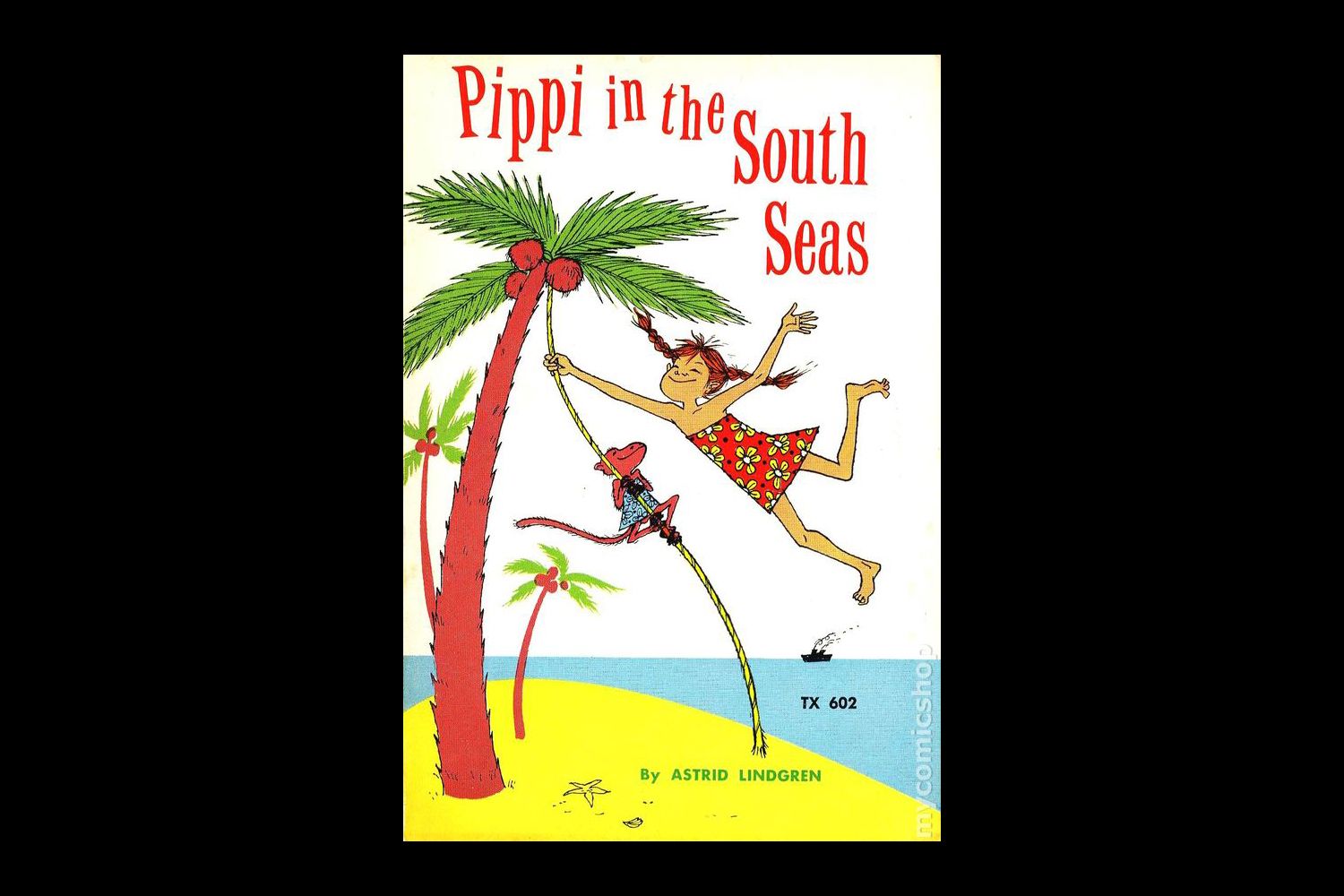
The act of decolonization requires active steps to redress past injustices related to colonialism. It is complicated to decolonize museums because of the deep and intimate relationships colonial states have to their collections as monuments to nation-building and authorized heritage. These relationships held by majority populations and governance are locally specific; however, what unites the various geographies is the history of colonization, and the continued violence on othered bodies in those locales. This presentation will address these local and transnational histories in relation to the contemporary time, and offer possible pathways to decolonize colonial desires of collection.
Uzma Z. Rizvi is Associate Professor of Anthropology and Urban Studies at the Pratt Institute, Brooklyn, NY, and a Visiting Professor at Shah Abdul Latif University, Khairpur, Pakistan. Rizvi’s research interests include decolonizing archaeology, ancient urbanism, critical heritage studies, new materialism, and the postcolonial critique. A primary focus of her work contends with archaeological epistemologies and methodologies, and changed praxis based on decolonized principles and participatory ethics. Rizvi has intentionally interwoven archaeology with cultural criticism, philosophy, critical theory, art and design. Her recent monograph, The Affect of Crafting: Third Millennium BCE Copper Arrowheads from Rajasthan, India (2018) follows other publications including volumes such as Archaeology and the Postcolonial Critique (2008), Handbook on Postcolonial Archaeology (2010), and Connections and Complexity: New Approaches to the Archaeology of South Asia (2013). Most recently, her article, Archaeological Encounters: The Role of the Speculative in Decolonial Archaeology (2019) was published in a special issue on Archaeology and Futurity, in the Journal of Contemporary Archaeology. Rizvi specializes in studying third millennium BCE communities in the MENASA region, and she is a critical voice for global issues related to issues around equity and justice.
April 23, 2021, 5 pm CEST
Franca López Barbera, Deforestation as Epistemicide
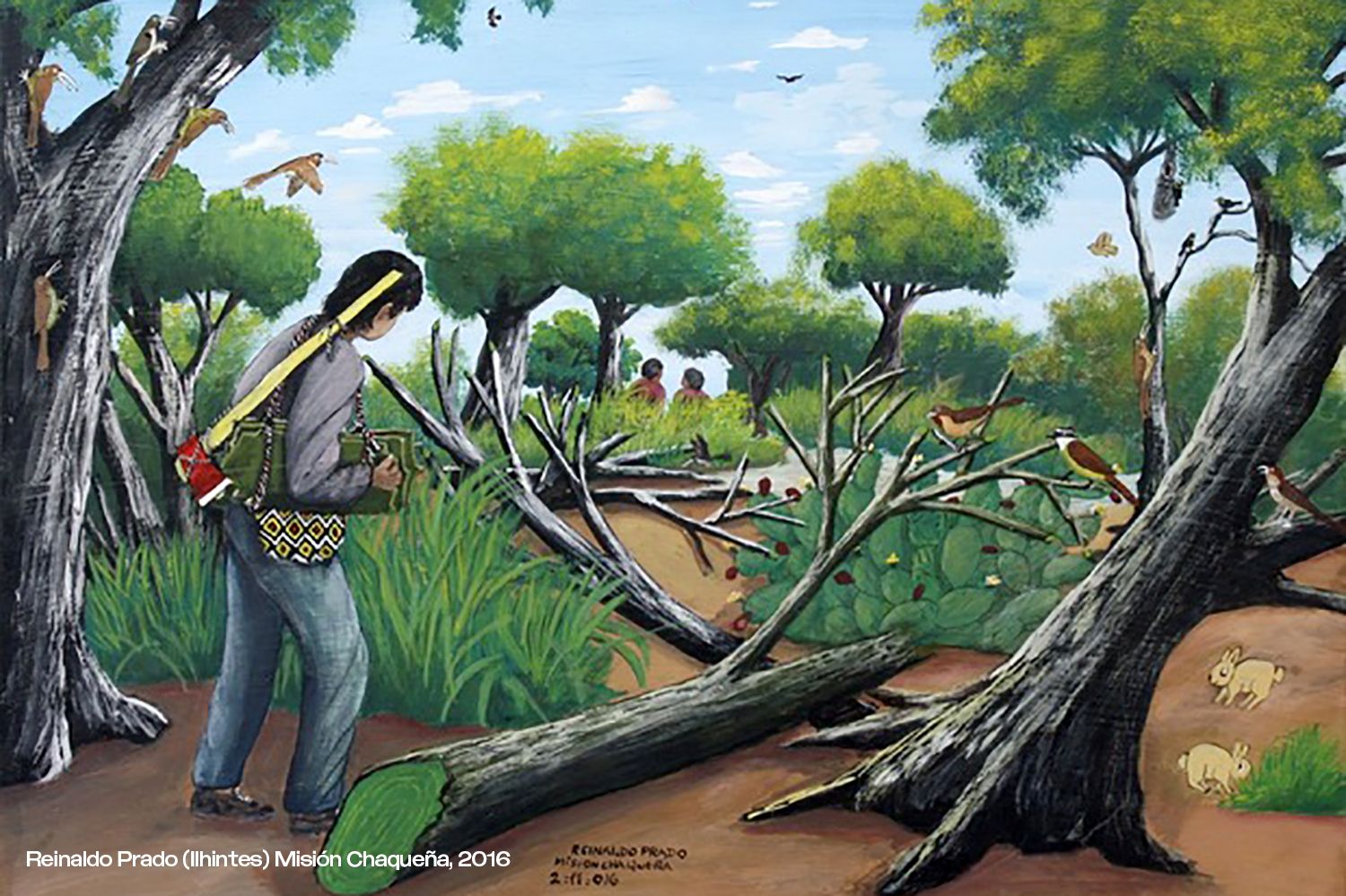
When a tree is cut down, what is actually being destroyed? Which kind of knowledge surfaces with regards to Nature and how to relate to it? Departing from and following the environmental destruction of the Gran Chaco region of Argentina, this presentation will explore how the dispossession of land goes hand in hand with the systematic destruction of forms of knowledge other than the Eurocentric thought. Deforestation produces a double destruction: the material destruction of nature understood as a resource and an onto-epistemic destruction of nature as a collective subject. The result is the destruction of the whole sphere of existence, which includes the sphere of knowledge, of those colonised for whom Nature is, simply put, life.
Franca López Barbera is an Argentinian designer, researcher, and curator based in Berlin. She holds a Bachelor of Arts in Industrial Design and a Master of Science in Design Research. Her work explores the intersection between nature, coloniality, gender, and ethics. Her current research builds on the introduction of consent in design-nature relationalities against extractive regimes. Prior to this, Franca has straddled several professions, working with various design practices, art studios, non-profits, and academic institutions. She is currently curating the Argentinian pavilion for the 2021 London design Biennale.
April 30, 2021, 5 pm CEST
Edna Bonhomme, Imperial Fevers, Invisible Lives
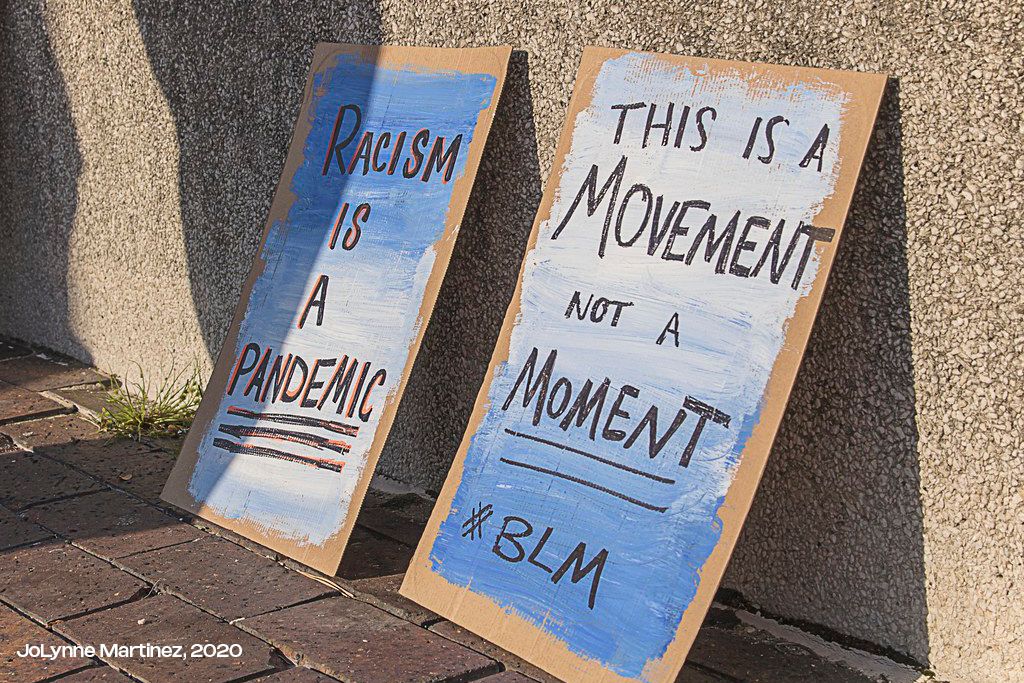
Epidemics are not just about the bacteria and viruses that coexist with us; they also reflect the social divisions that push some people to the margins of society. Whether it is the HIV/AIDS epidemic in Black American communities or the high incidence of maternal mortality for Black people, we have to reckon with how histories and legacies of inequality create the phenomenon of premature death. This talk addresses these inequalities as it relates to sexual and reproductive health of Black women in the United States and beyond, through the use of textual archives and oral histories that help to unpack the variant notions of sickness and health. By bringing these to the forefront, we also seek and propose opportunities to repair existing broken systems through reformatting the existing modalities of care in our communities.
Edna Bonhomme is a historian and writer based in Berlin, Germany. She earned her PhD in the history of science from Princeton University, and a Master of Public Health from Columbia University. Working with sound, text, and archives, Edna explores contagion, epidemics, and toxicity through decolonial practices and African diaspora worldmaking. A central question of her work asks: “what makes people sick?” Her practices trouble how people perceive modern plagues and how they try to escape from them. As a researcher, she answers this question by using textual archives and oral histories to unpack the variant notions of sickness and health,as well as the modalities of care that shape the possibility for repair. Her artistic language combines science studies with traditional healing elements. Her project Black Health in Germany is part of a long-term research project that she started in 2019 with a growing collection/archive on the representation of Black health and healing in Germany. Some of her critical multimedia projects have been featured at Haus Kulturen der Welt (Berlin), alpha nova galerie futura (Berlin), and the Austrian Academy of Women Artists (Austria). She has written for academic journals and popular press including Aljazeera, The Baffler, The Guardian, The Nation, Africa is a Country, The New Republic, ISIS History of Science Journal, Jacobin Magazine, Journal for North African Studies, Public Books, and other publications.
May 7, 2021, 5 pm CEST
Evan Nicole Brown, The Frame of History

History is filled with all sorts of perspectives; it is the job of the writer as storyteller to find the story within the facts, and make choices about which voices to elevate on record. This discussion will explore how to engage with the past as a journalist, and cover topics or events that we may not necessarily find in history books, especially those that might not be told accurately. Reporting is a tool that allows journalists to gather data and human experiences in order to connect dots — whether that be between different people, places, or moments. We must find the best approach to unpack an issue: first, choose a topic to write on; then, figure out who the article is written for; and finally, customize based on what each story demands. This means selecting a particular form (essay, reported article, interview) and making sure that the editing process serves the larger goal. Design history, in particular, is made up of many parallel stories, so we will discuss how to add additional details or assign a new framework to historical narratives in order to make connections for a new and modern audience
Evan Nicole Brown is a writer, reporter, and editor from Los Angeles, currently based in Brooklyn. She graduated from Bard College with a joint degree in Literature and Written Arts before working in advertising as a copywriter and book publishing as a junior literary agent. Since then, she has written for various outlets including Architectural Digest, Atlas Obscura, Bustle, Chicago Magazine, Fast Company, Gothamist, Okay Player, Paper Magazine, and The Creative Independent. Currently, Evan is a reporting fellow at The New York Times on the politics desk covering the 2020 presidential election.
May 14, 2021, 5 pm CEST
Tasheka Arceneux-Sutton, Finding Louise E. Jefferson
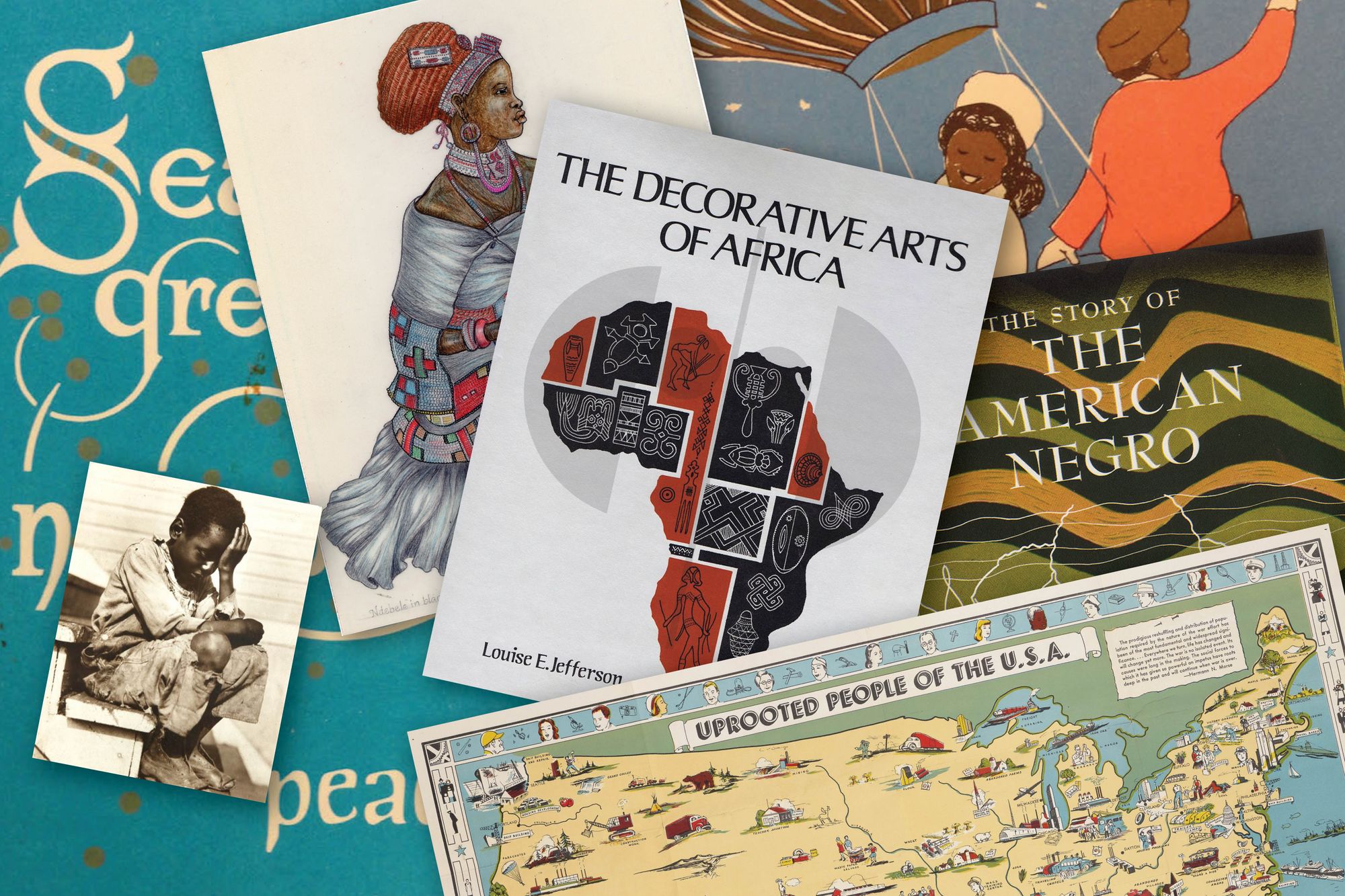
This lecture is centered around the life and works of Louise E. Jefferson, a polymath Black artist, graphic designer, calligrapher, illustrator and photographer, whose significant contributions to American visual culture are still largely unknown. More than sharing research findings and biographical notes, this presentation aims to provide insights into “chasing images”—that is to say, researching history as a graphic designer. Taking participants in a metaphorical road trip through the meandering paths of discovery, Tasheka will lead us from her first encounter with the works of Louise E. Jefferson, to opening the box with her archived works at The Amistad Research Center in New Orleans, and beyond.
Tasheka Arceneaux-Sutton is an educator, image-maker, graphic designer and researcher. Originally from New Orleans, Tasheka has a BA in English with a minor in Graphic Design from Loyola University, and an MFA in graphic design from the California Institute of the Arts (CalArts). In graduate school, Tasheka discovered her true voice as a graphic designer, where she experimented with typography and publication design, and investigated the authenticity of the visual language that is associated with African American pop culture, and the history of black graphic designers. Tasheka runs her studio BlacVoice, and is currently an Assistant Professor of Graphic Design at Southeastern Louisiana University where she teaches graphic design, typography, motion design and internet design. She is also co-founder of the online program BIPOC Design History. Her work has been included in group exhibitions: Mentors Centennial (New Orleans), How A Book Is Made (New Orleans), The Department of Fine and Performing Arts Faculty (Hammond, LA), Joie De Vivre: A Meditation in New Orleans, Katrina & The U.S. (Chicago), Re:GardingValencia (Valencia, CA), Boomerang (New Orleans), and Eclectica (New Orleans).
May 21, 2021, 5 pm CEST
Bahia Shehab, Ladies of Letters
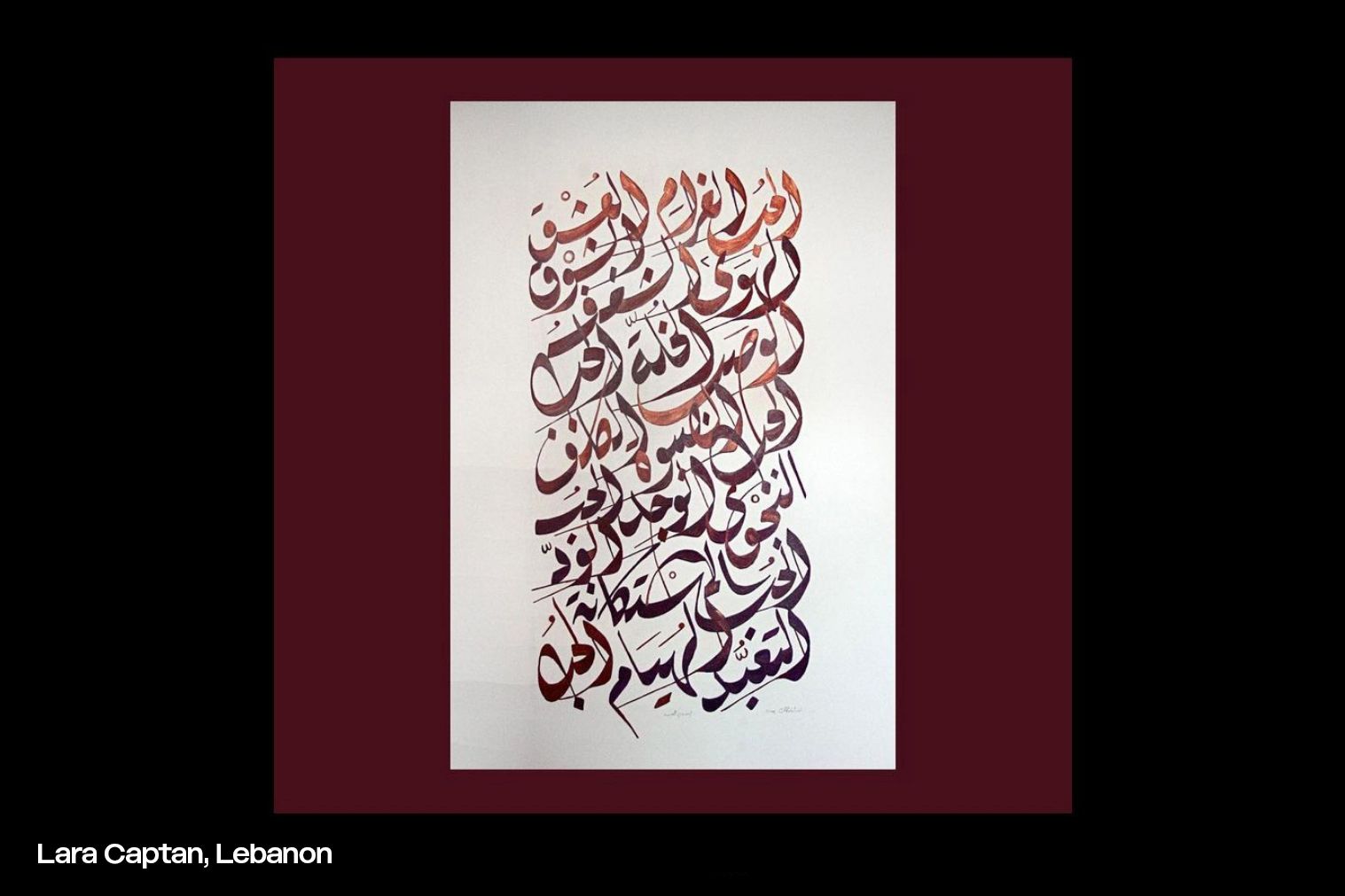
Having turned to online programming due to COVID-19 in July of 2020, the Cairo-based lecture series TYPE Lab hosted “Ladies of Letters”—a four-generation program featuring women designers who have made extensive contributions to Arab type design and visual culture. The program included a presentation by historian Dr. Noha Abou Khatwa about forgotten female calligraphers and patrons from the Islamic Mamluk era, as well as presentations by thirteen female designers with ages varying between 20-60. Each of them shared their work experiences in various design disciplines, as well as the challenges they face as women working in the field. In this talk, we reflect on their stories, the digital mode of knowledge exchange and production, and its potential for history writing.
Bahia Shehab is a multidisciplinary artist, designer and art historian. She is Professor of design and founder of the graphic design program at The American University in Cairo. Her work has been exhibited in museums, galleries and streets around the world. Through investigating Islamic art history, she reinterprets contemporary Arab politics, feminist discourse and social issues. She has received a number of international recognitions and awards, which include the BBC 100 Women list, a TED Senior fellowship, and a Prince Claus Award. She is the first Arab woman to receive the UNESCO-Sharjah Prize for Arab Culture. Shehab holds a PhD from Leiden University in The Netherlands, and is the founding director of Type Lab@AUC. Her publications include You Can Crush the Flowers: A Visual Memoir of the Egyptian Revolution, At The Corner of a Dream, A Thousand Times NO: The Visual History of Lam-Alif and the co-authored book A History of Arab Graphic Design.
May 28, 2021, 5 pm CEST
Luiza Prado, Salted Waters In the Whorls of Time

This lecture explores ideas around radical care and multispecies resistance to colonial biopolitics, through the practices of cooking and storytelling. We’ll engage with stews—dishes typically meant to nourish families and communities, passed down through generations, and situated in the complex intersection of personal and cultural histories—as materializations of the concept of errantry, present in the work of Martinican philosopher Édouard Glissant. In a stew, a number of local ingredients are brought together through contact with salted liquids—a conceptual link to the sacredness of sea and saltwater. Roots, spices, smells and flavors are deeply embedded in histories of anticolonial resistance and community building; they are multispecies articulations that complicate linear notions of time and space, that demand attention and care, and challenge notions of home and belonging, origin and nativeness.
Luiza Prado de O. Martins is an artist and researcher whose work examines themes around fertility, reproduction, coloniality, gender, and race. In her doctoral dissertation, she approaches the control over fertility and reproduction as a foundational biopolitical gesture for the establishment of the colonial/modern gender system, theorizing the emergence of “techno-ecologies of birth control” as a framework for observing—and resisting, disrupting, troubling—colonial domination. Her ongoing artistic research project, titled A Topography of Excesses, looks into encounters between human and plant beings within the context of indigenous and folk reproductive medicine, approaching these practices as expressions of radical care. Throughout 2020, she will develop the long-term garden project “In Weaving Shared Soil” in collaboration with The Institute for Endotic Research. She is currently based in Berlin. She is a founding member of Decolonising Design
June 04, 5 pm CEST
Sria Chatterjee, Visualizing the Invisible
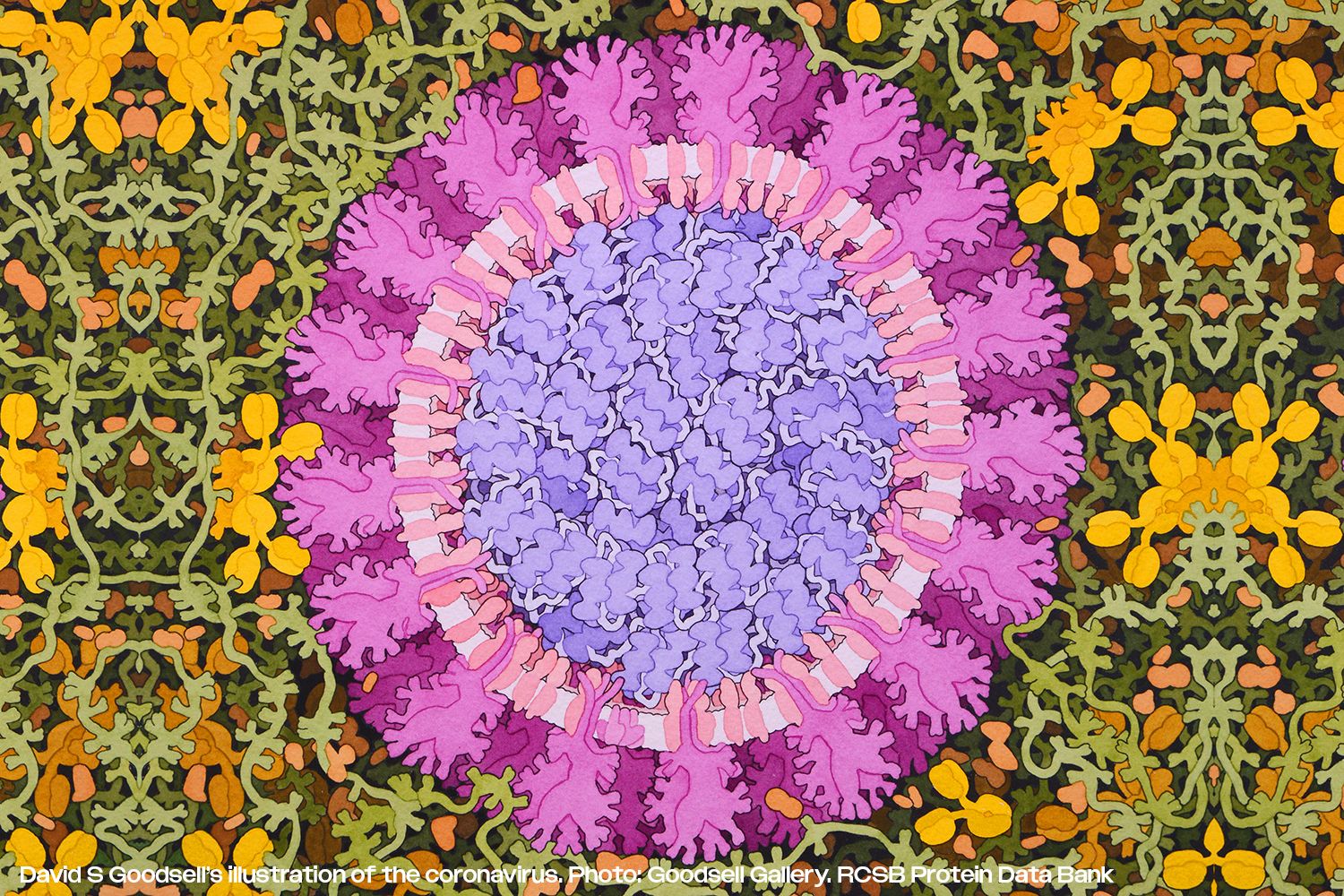
This lecture will explore the histories of seeing and how seeing—or the inability to see something—is political. The act of visualizing and processes of visualization are always implicated in forms of care as much as they are in political violence, surveillance, xenophobia and institutional racism. The COVID-19 pandemic has touched upon some of art and design history's really fundamental questions. To think of the ways in which we visualize the coronavirus today is also to delve into longer histories of seeing, of colonialism and the spread of infection. Through the digital project Visualizing the Virus, we explore the daily lived experience and its links to pathologies and natural sciences. We seek spaces for sociocultural critique and reflection on the scales of the crisis, and the role of design to bridge these infrastructural inequalities.
Sria Chatterjee is an art historian and environmental humanities scholar. She specializes in the political ecologies of art and design in the nineteenth and twentieth centuries, with a particular focus on transnational environmental histories, the histories of art and science, and the relationships between climate and race. Sria is currently a Researcher at the Institute for Experimental Design and Media, FHNW; an Associate Scholar at the Max-Planck Kunsthistorisches Institut, Florenz; and a Contributing Editor at British Art Studies, the open access peer-reviewed journal co-published by the Paul Mellon Center and the Yale Center for British Art in New Haven. Sria holds a PhD from Princeton University.








